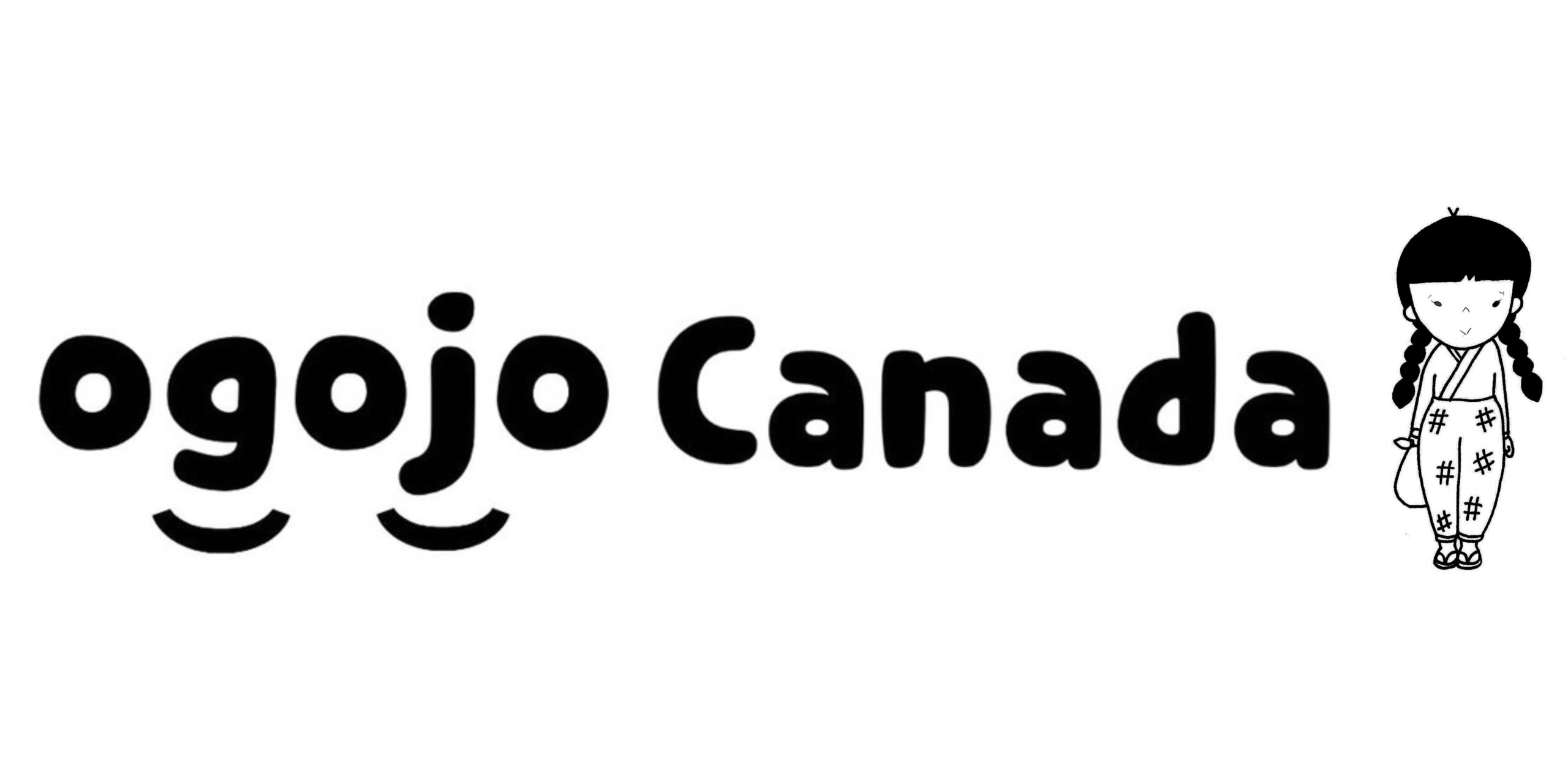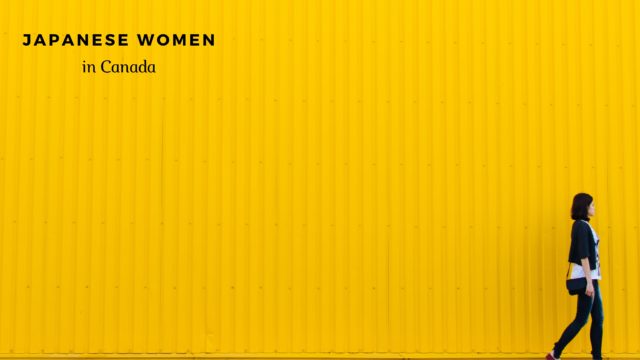Marie’s parents are both Japanese. They met in Canada and had Marie and her sister. Marie grew up in Vancouver
- Did you feel like you were Japanese or Canadian when you were a child?
- After you noticed that you were in the two opposite environments, did you have conflicts with your parents at home?
- Having an older sister helped you to support each other?
- Why do you think keeping the language was that important to them?
- Now you are raising two daughters. Would you like your daughters to learn Japanese or the culture?
- Can you please tell me about your career? What did you used to do before you had kids?
- What do you do now?
- Thanks for telling us about your childhood. Lastly, would you please give any advice to those families who are raising kids in different cultures?
- EDITOR’S COMMENT
Did you feel like you were Japanese or Canadian when you were a child?
When I was little, at home I was Japanese, but when I was outside, I was Canadian. I struggled with my cultural identity. Early on, I felt I was Japanese because my whole family spoke Japanese. I learned Japanese. I was with a Japanese nanny at some point and having playdates with Japanese friends.
Can you please describe the struggle with your cultural identity?
I felt my identity was very Japanese at an early age, but as soon as I started to be more aware of my environment and realized that people spoke other languages, I started to question that. Right away, I noticed that I was different as soon as I went to school. For example, what I brought to school for my lunch was different. I got teased for bringing Onigiri, rice with seaweed. Japanese restaurants weren’t as common back then. Immediately I noticed that I was an outsider. I made every effort to try to blend in, like most children like to do at a young age.
From then on, I had a cultural identity crisis. I felt like I didn’t really belong to either culture fully, and I didn’t really know who I was. Especially because my parents were adamant about speaking only Japanese at home. They didn’t allow us to speak English, which meant you weren’t allowed to be who you were outside of home inside the house. That made things more difficult.
Did you feel like you were pretending to be someone else at home?
No, it wasn’t pretending but I did feel like I could only show a certain side of me. For example, in Japan, it’s about not embarrassing yourself, saving face, being respectful and being polite, and not always saying what you think. So I tried my best to do that while I was around Japanese people. In Canada, it’s the complete opposite. Be yourself, be assertive, be vocal, be proactive, and initiate things. It was very confusing because in my house, it was one way and outside of the house, it was another way.
Eventually I had to find my new me and find out my own new identity based on these two very different worlds that I lived in.

After you noticed that you were in the two opposite environments, did you have conflicts with your parents at home?
I think that at the beginning, there were no issues because I was really young, but as I grew older, my identity outside of home started to become stronger. Of course that’s going to happen as soon as you start detaching from your parents and start relating more to your peers. Once that shift happened, I think in late elementary school, the conflict started really becoming apparent because the way you perceive things and the way your parents do are so vastly different. Conflict is inevitable. There were a lot of angry fights and tears.
Did you feel that you couldn’t understand or connect with your parents?
It wasn’t just that we couldn’t understand each other. I also didn’t know how to connect to them in that way. I wouldn’t even know how to start; even the words to connect in that way. I don’t think many Japanese parents in their generation shared their emotions or feelings, mental health or anything like that, so I certainly would never talk about that. I wasn’t exposed to that kind of language with my peers, so I didn’t have the ability to have those kinds of conversations.
Do you think it was cultural?
I think a part of it was cultural (they probably didn’t even want to have that kind of relationship with me), but a part of it was that I didn’t have the vocabulary. Literally, I didn’t have the ability to speak in Japanese in that way because they have never spoken to me that way. They didn’t share their feelings with me, so I had never learned to express myself. I wouldn’t even know what words to use.

Having an older sister helped you to support each other?
You would think so, but we had very separate lives. I was heavily involved in gymnastics (*Marie was an Olympic candidate at one point.) and my sister was heavily involved in academics. She is two years ahead of me, so she left Vancouver and went to Boston for university when I was in Grade 10. Even prior to that, we had such a busy life. After school, we always had some kind of activity – gymnastics, skating, piano, French tutor, or music theory from the first thing in the morning and the last thing at night. There really was no time for us to talk to each other. They were very supportive of anything we were passionate about, but the flip side of that was that we didn’t have a relationship within our family.
Was there anyone else who would have supported you?
What made it very difficult is that we didn’t have any family outside us. Even to this day, that has affected me to the point that I have adopted my husband’s family for my own. I have craved those kinds of relationships. When I go back to Japan, it feels good because I meet all aunts, uncles and cousins I didn’t grow up with. Even though I was never very close with them, as an adult, I am reconnecting with them more, because we have more to relate to each other. As a child, it was different. It was a lonely time.
How did you overcome your loneliness? What was your turning point?
After a while, I sort of turned my back on expecting that from my family. I found comfort in my relationship with my friends and eventually, boyfriends. I feel like when I had to make a choice which culture I wanted to be part of, it meant I had to turn my back on my family and rely more on my friends and peers, bosses, and teachers. I had to make the Canadian value more important to me than the Japanese one to find my identity. By picking my Canadian friends, it was harder to play the role of a Japanese daughter. I definitely wouldn’t be the daughter they wanted me to be. I had to be who I was. That was difficult.

Why do you think keeping the language was that important to them?
My parents made a lot of effort to maintain Japanese culture in us. I am sure they must have felt lonely too. They didn’t have family either. For them, WE WERE the connection to Japan as well because they can speak to us in their own language. They were also isolated from their own family. That made them cling to it more. I think they thought that was ensuring that they could maintain a relationship with us.

Now you are raising two daughters. Would you like your daughters to learn Japanese or the culture?
I was originally unsure about it at first. I made the decision that I wanted my oldest daughter to learn the language. I went all in. The thing I find about learning Japanese, it’s all or nothing. You go all in or don’t go in at all because otherwise, it won’t last. Unless you are able to get them to a point of reading and writing, they are not going to speak in Japanese at a certain point because they won’t be able to read books and articles, or they won’t be able to express themselves as they mature. Once you can’t do that, it’s never going to be a priority language for them.
How did that go?
When I started, I was torn and I didn’t know what to do. Japanese is definitely part of my culture, so I wanted to share that. I realized very quickly that it was negatively affecting the relationship with my daughter. She didn’t want to speak Japanese, or she didn’t want to go to a Japanese music class. We started having fights about it. I didn’t want to perpetuate the problem, so I stopped everything.
How do you feel about your decision?
I feel so much at peace. In the beginning, it felt like a waste. Up until she was four or five, my daughter was fluent. We were speaking in Japanese. She would speak to my parents in Japanese and they loved that because they could have a connection with her. In some way, I feel like I did it to please my parents too. I just realized that she was miserable, and I was getting miserable. It wasn’t good for anybody’s emotional health. I gave up on the idea. I still try to speak to her Japanese from time to time, so that she has inkling. I am ok if she never speaks Japanese.
Are you glad you tried anyway?
It took a while to give up on the idea. I think it’s because of how happy my parents were able to speak to my daughter, but I just didn’t have the ability to commit that much. Also, as soon as she started Kindergarten, that’s it. In COVID, we haven’t been able to go back to Japan. There is no connection There is no desire on their part. There is no need. I think it’s ok. You are raising a Canadian. It’s unfortunate that you lose connection through language, but there are other ways of connecting. That’s enough for me.

Can you please tell me about your career? What did you used to do before you had kids?
In 2005, I started my own business working in a media production industry where I collected voice samples for voice recognition systems in cars. That was basically working with a company in Japan called Denso, where I used Japanese a lot and the language became helpful. I was grateful that my parents put me through to learn Japanese. Especially in Vancouver where it is relatively a small town, you don’t have many opportunities for international business. I felt that that definitely gave me the edge to be able to work with Japan directly and have very interesting work opportunities.
You chose to stay home when you had your child. Any reason for that?
I did things differently from many of my friends in that I quit my job and decided to be a full time mom because it was something important to me. We were also lucky in that we were in a position to do that. I wanted to be the present parent, to be able to emotionally connect with my children, which is extremely important to me. It’s funny that Japanese influence (to be a stay-at-home mom) came in there. It’s extremely tough but I am happy I made that choice. After everything that I experienced with my children, I mostly did it for myself and my own healing. Also, I had the chance to focus on my career early on, so I didn’t feel like I was missing out on my professional growth.
What do you do now?
My husband and I recently started Veldskoen Shoes Canada. The shoes are originally from South Africa. They are hand-made leather shoes using by-products of the leather that would have gone to the waste anyway. They are ethically created in Durban, South Africa. The shoes are available world wide and are quite popular, so we wanted to bring them to Canada as well. Currently we sell mostly through e-commerce, but we are in some boutique stores around the lower mainland. We are hoping to grow that.




Website: https://veldskoenshoes.ca/
Instagram: Veldskoen Shoes Canada
Will you start focusing on your career more again?
Once both of my children start attending school, I will definitely go back to working in some capacity. It’s important for my children to see that I work, and I want them to know that women can do both. I want them to inspire themselves to do that one day.
Thanks for telling us about your childhood. Lastly, would you please give any advice to those families who are raising kids in different cultures?
Your openness becomes important. I think if my parents had been more open to welcoming Canadian culture to their life, we might have been closer today. But I realize they didn’t know how to, nor did they even have the desire to perhaps. I think they also had such a desire for my sister and I to be Japanese. It was difficult for them to let go of that.
You have to incorporate Canadian culture a little bit more, which is hard to do because you were not part of the culture. Forget about being embarrassed. I feel like everybody in Japan is afraid of being embarrassed or showing weakness, doing something crazy. It’s ok.
I really feel like the parents have to prioritise emotional and mental health in children first before thinking about language because the connection will come no matter what, whether it’s English, French or Japanese. It will happen as long as you can both really see each other and be able to share with each other, without limits and be completely honest. That may not be the kind of relationship that a Japanese parent wants with their child, but as a Canadian child, that is certainly what they will hope for from you.
My parents wanted to protect us from pain or failure. I don’t feel that is conducive to learning. When you don’t learn, you are constantly dependent. Maybe I am making a big generalization, but with my Canadian friends, they were allowed to fail, but they had parents to catch them emotionally. I believe that that’s the role parents should take, it’s not to protect them. It’s to be by their side when they fail, so that you can overcome any challenge.
Make your decision based on love, not fear. I think my parents led from both. They led from love and also led from fear. The fear is what hurt me deeply, but the love saved me.
Thank you very much!
EDITOR’S COMMENT
Marie is one of the most bilingual Japanese Canadians I’ve ever met. Bilingualism tends to focus on the language, but in my opinion, bilingualism is not only that, but also about the cultural knowledge and understanding of both sides.
I can sympathize with the parents’ wish for their daughter to remember her Japanese background and stay connected to Japan, and their fear that they would not be able to communicate with her or understand each other unless they spoke the same language.
Language is not the only tool to connect with each other. I felt that visiting Japan and actually experiencing the culture through things other than words, such as food, anime and games, would be some of the tools to create interest and build relationships. In this dialogue, I learned once again that while it is useful to learn languages, the most important thing is to build a relationship that is based on heart-to-heart communication.











